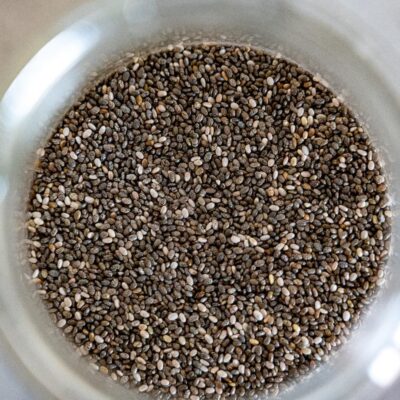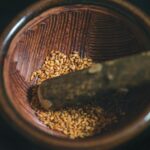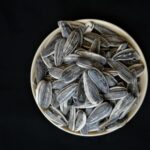Yes, dogs can safely eat chia seeds. The seeds are a well-known “superfood” and have tons of health benefits for dogs, including regulating blood sugar, strengthening body cells, and improving quality of life. Chia seeds are best fed in moderation for the dogs to fully enjoy their health benefits.

Safe: This food is generally considered safe by the veterinary community. Dogs can eat this food sometimes or in small amounts but contains little to no nutritional value.
| Food Safety | Beneficial when given in moderation |
|---|---|
| Nutritional Value | Chia seeds are rich in antioxidants and vitamins, making them an excellent addition to a dog’s diet. They are also a great source of fiber. Therefore, they help dogs feel full and avoid constipation. |
| Potential Risks | Chia seeds’ high fat content can lead to weight gain and obesity if fed in excess. |
How Many Chia Seeds Are Safe for Dogs?
Like any food, chia seeds are also best for dogs in moderation. As a starting point, you can give smaller breeds of dogs a teaspoon of dogs before gradually building up their portions. It is best always gradually introduce any new food into your dog’s diet.
How to Feed Chia Seeds to Dogs
Mixing chia seeds with their regular meals is the easiest way to introduce them into your dog’s diet. However, there are other creative ways to get your dog to eat chia seeds. Making chia seed treats with whole-wheat flour and broth can be an excellent way to combine health and taste for your canine companion.
Frequently Asked Questions
-
While dogs are fine with chia seeds, some people recommend soaking them for some time before giving them to the dog. Soaking the seeds helps soften them and makes them easy for dogs to digest.
-
Chia seeds are excellent if your dog suffers from constipation. The seeds are an excellent source of fiber and provide the need for roughage to make bowel movements easier.



